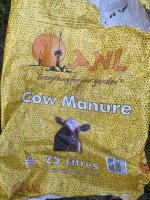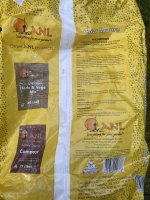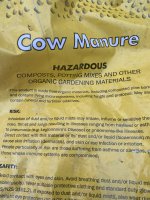Happy new year everyone!
Can someone please explain to me how the use of manures apply in the garden?
I understand the concept of your traditional compost. However I’m having a hard time getting my head around do use of manures. I see a lot of people use manures to soil prior to planting, however this is the only concept I understand.
Are (composted) manures and traditional compost interchangeable? Especially when it comes to mixing in with potting mix for container plants?
Also, what is the difference between the different animal manures?
I have a bag of store bought cow manure which I believe is mixed with other compost ingredients (see picture below). Can I use this in the same way as traditional compost ? Is it safe to use in the garden with potting mix and as a top dressing?
Any advice or discussion points are appreciated!
Can someone please explain to me how the use of manures apply in the garden?
I understand the concept of your traditional compost. However I’m having a hard time getting my head around do use of manures. I see a lot of people use manures to soil prior to planting, however this is the only concept I understand.
Are (composted) manures and traditional compost interchangeable? Especially when it comes to mixing in with potting mix for container plants?
Also, what is the difference between the different animal manures?
I have a bag of store bought cow manure which I believe is mixed with other compost ingredients (see picture below). Can I use this in the same way as traditional compost ? Is it safe to use in the garden with potting mix and as a top dressing?
Any advice or discussion points are appreciated!







